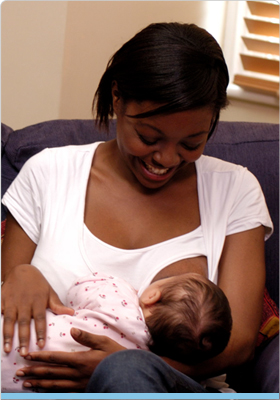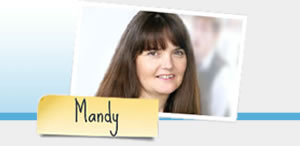 |
 |
| |
What's happening to your baby?
You may be able to tell the difference between a jab from your baby’s elbow and a nudge from its knee these days. And you may be amazed at how much your bump visibly moves.
Your baby’s sleep patterns are similar to that of a newborn now and it spends more time in REM (short for Rapid Eye Movement) sleep than older children and adults.
Although most of the bones in your baby’s body have hardened, those in the skull are still quite soft and haven’t fused together yet. This is to allow your baby’s head to ‘mould’ and pass down the narrow birth canal more easily.
Your baby is growing fast now and if your placenta was lying low in your womb at your 20-week scan, it’s probably moved up and out of the way of your cervix by now. |
|
|
|
What's happening to you?
Have you and your partner discussed how you’ll feed your baby yet? It's important to make this decision together so your partner can support you with whatever method you choose.
Breastfeeding gives your baby the best possible nutrition during the first six months of life and protects it from infections. If you have any questions or worries, talk to your midwife or check out our videos on how to breastfeed.
However, if you don’t wish to or you’re unable to breastfeed, there is a huge range of bottles, teats, sterilisers and formulas available, so take your time deciding what’s best for your baby.
Another option to consider is combination feeding – a mixture of breast and bottle. You'll need to allow a few weeks for breastfeeding to get established before starting this, but it's a good way to maintain the benefits of breastfeeding. It’s worthwhile talking to your healthcare professional about your feeding options.
Breastfeeding or Bottle-feeding – what equipment do you need? |
|
 |
|
|
|
"Breastfeeding is like any other skill. Some mums and babies take to it straightaway while others struggle to begin with. It's a good idea to offer your baby a feed soon after it’s born as babies are often very receptive to the breast in those first few hours."
Bev Rolls, Midwife |
|
|
 |
|
| We answer hundreds of questions a week from parents. For free support and advice, get in touch via our new Live Chat service, call or email.
|
|
|
 |
|
|
Come and get to know us a little better. |
|
|
| Partners play a vital role in successful breastfeeding. Research shows that women whose partners are positive about breastfeeding are more likely both to start breastfeeding and to carry on for longer. |
|
|
| What to expect during early labour, and when to call your midwife. |
|
|
|
|
|
| Important Notice: Breast milk is best for babies and breastfeeding should continue for as long as possible. Good maternal nutrition is important for the preparation and maintenance of breastfeeding. Introducing partial bottle-feeding may have a negative effect on breastfeeding and reversing a decision not to breastfeed is difficult. You should always seek the advice of a doctor, midwife, health visitor, public health nurse, dietitian or pharmacist on the need for and proper method of use of infant milks and on all matters of infant feeding. Social and financial implications should be considered when selecting a method of infant feeding. Infant milk should always be prepared and used as directed. Inappropriate foods or feeding methods, or improper use of infant formula, may present a health hazard. |
|
All the best,
The SMA Baby Club |
|
|
|
 |
 |
 |
 |
 |
 |
|
Please do not reply to this email, as the mailbox is unmanned. For any help or assistance please contact our Careline team.
ZTC1094ab/08/15
Nestlé UK Ltd & Nestlé (Ireland) Ltd ®Reg. Trademark |
|
 |
|